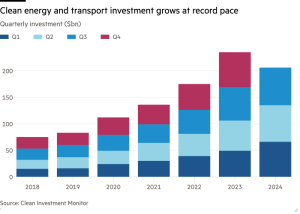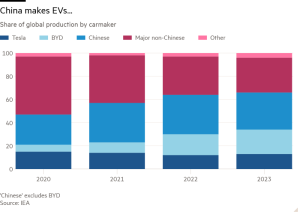Would you trust a self-hypnosis app?
Unlock the Editor’s Digest for free
Roula Khalaf, Editor of the FT, selects her favourite stories in this weekly newsletter.
“On one, look up; on two, slowly close your eyes and take a deep breath; and on three, let your breath out and your body float.” So begins my self-guided hypnosis session with Reveri. I sink deeper into my chair and, to my surprise, feel my arm beginning to rise – a sign the process might be working.
Reveri is one of a number of apps offering programmes to help manage and alleviate issues ranging from stress and trauma to improving concentration and controlling unwanted habits. Sessions tend to be between five and 13 minutes, guiding the user to a state of highly focused attention.
After seeing the power of hypnotism stop my stubborn uncle from smoking, I wondered if it might help me stumble my way through musical performances as a teenager. More recently, I’ve pondered whether it might mitigate my husband’s insomnia. I am not alone in this curiosity: last year Reveri’s sign-ups grew by 50 per cent, while HypnoBox, another self-hypnosis app, almost doubled in revenue and saw a 394 per cent increase in subscription rate.
Hypnosis is increasingly being recognised as a legitimate therapeutic tool. “Hypnosis works by allowing individuals to enter a state of deep relaxation where the subconscious mind is more open to positive suggestions, which can help with changing behaviours, attitudes or feelings,” says Eliott Cohen-Skalli, founder of self-hypnosis app Oneleaf, which launched last year and develops online programmes with the advice of a board of hypnotherapists and psychologists. He explains that neuroimaging studies have shown changes in brain activity during hypnosis, particularly in areas related to attention, perception and emotion regulation. This allows for greater receptivity to positive thinking.
According to Reveri founder Dr David Spiegel, a Stanford psychiatrist who’s used hypnosis with around 7,000 people over the course of his career, the most fear-inducing misconception around the practice is loss of control. In actual fact, it’s about gaining control. “Suggestibility is actually cognitive flexibility – the capacity to discover abilities you didn’t know you had. That’s a great context for change,” he says. It can’t make a football coach dance like a ballerina, but “it does offer people an opportunity to try being different. If you want to better manage pain or get to sleep, seeing things from another point of view can be valuable”.

The first step on Reveri is to test your hypnotisability, which is partly down to genetics, but is also experiential. “If you were the kind of kid who used their imagination a lot, you tend to be more hypnotisable as an adult,” says Spiegel. “As we go through adolescence, we think more logically: about 20 per cent of the population retain their high hypnotisability in adulthood; 60 per cent have it to some extent but not as intensively.”
Having answered a few introductory question, I am given the profile of “The Diplomat”, indicating that I am moderately hypnotisable and will find certain categories – Unwind from Work and Breathing Exercises – more effective than others. Over the course of a few weeks, I try out sessions designed to relieve stress and anxiety – one of the most in-demand treatments alongside those for insomnia and improving focus. Spiegel’s mellow voice asks me to picture a screen with my worry on one side and an actionable solution on the other. At first I panic at the pressure of having to pinpoint a specific problem, and feel slightly irritated at what feels like a reductionist approach – anxiety is often caused when there aren’t obvious solutions. But once I’m able to break the issues down, I can visualise ways to tackle them.
I also sample Oneleaf’s Sleep Better programme with my husband. During the session we are prompted to enter an imaginary, starlit garden. I soon hear my partner’s breathing become heavier as he nods off.
One of the main advantages of using an app for self-hypnosis is convenience and accessibility – a subscription to Reveri is £89.99 a year, significantly less costly and time-consuming than a course of in-person sessions. “If you wake up at 3am, the last thing you want is me in your bedroom telling you how to go back to sleep,” chuckles Dr Spiegel. “But you’ve got me on the app.” Although it can’t provide the same tailored experience as a live hypnotherapist, Reveri has created interactive recordings using Alexa technology, and this year has introduced Hypno-Pharmacy – a support tool that assesses your concerns through an online problem tracker and delivers a bespoke self-hypnosis prescription.
“People are seeking alternatives because they are frustrated with the limitations of traditional mental health solutions,” says psychiatrist and executive coach Dr Anna Yusim, pointing to costly sessions and potential negative side effects of many prescribed medicines. In contrast, hypnosis can provide fairly instant relief: “it brings unconscious material to the fore, making it easier to address and reprogram these core beliefs,” says Yusim. I expect a gradual process, but find the practice has an almost immediate effect: after each session I feel noticeably more relaxed, and am told practising regularly could lead to long-term benefits such as coping better with anxiety or improving sleep patterns. “Four out of five people benefit within ten minutes,” adds Spiegel.
But while it can significantly improve wellbeing, self-hypnosis is not a substitute for western medicine. “It’s an opportunity to try managing your own symptoms, or at least tie you over until you get the care you need,” says Spiegel. “The worst thing that happens is that it doesn’t work.” Adds Yusim: “Choose reputable apps created by qualified professionals, and remember that they may not be as effective for more complex psychological conditions.”
As my session draws to an end, my arm lowers and my eyes flutter open. I haven’t quite reached the trance-like state I had envisioned, but I do feel a greater sense of calm. I’m eager to return to my imaginary screen, and to try out being different.
#trust #selfhypnosis #app







